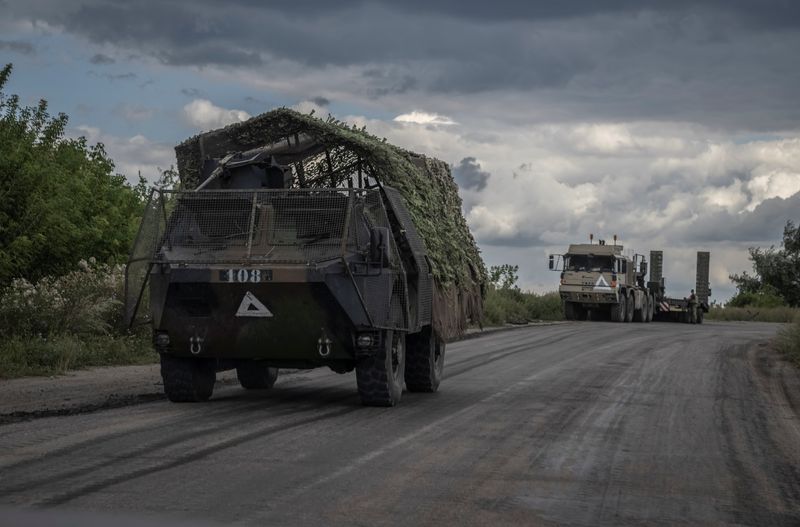By Guy Faulconbridge and Lidia Kelly
MOSCOW (Reuters) – Russia on Monday evacuated parts of a second region adjacent to Ukraine after Kiev sharply stepped up military activity near the border, just days after the biggest incursion into sovereign Russian territory since the war began in 2022.
Ukrainian troops rammed across the Russian border and swept through some western parts of Russia's Kursk region on Tuesday morning, a surprise attack possibly aimed at gaining leverage in potential ceasefire negotiations following the U.S. election.
Russia was apparently caught by surprise and stabilized the front in the Kursk region on Sunday, although Ukraine captured a small piece of Russian territory where fighting continued on Monday, Russian war bloggers said.
In the more southerly Belgorod region, regional governor Vyacheslav Gladkov said evacuations from the Krasnaya Yaruga district had begun due to “hostile activity on the border” that posed a “threat.”
“I am sure that our servicemen will do everything to counter the threat that has arisen,” Gladkov said. “We are starting to move people living in the Krasnaya Yaruga district to safer places.”
Russia has implemented a sweeping security policy in the Kursk, Bryansk and Belgorod regions, while Russian ally Belarus said it would increase the number of troops on the border after Minsk reported that Ukraine had violated the country's airspace with drones.
The bold Ukrainian attacks on Russian territory are intended to demonstrate to Western supporters that Kiev can still conduct major military operations while gaining negotiating leverage ahead of possible ceasefire negotiations.
Russian forces, which are vastly superior in numbers and control 18% of Ukrainian territory, have been advancing along the 1,000-km front this year after the Ukrainian counteroffensive in 2023 failed to make significant progress.
Kiev broke its silence on the attacks on Saturday when President Volodymyr Zelensky said Ukraine had invaded Russian territory to “restore justice” and pressure Moscow's troops.
WAR
Russia destroyed five drones over Belgorod overnight, 11 over Kursk and two over Voronezh, according to the Russian Defense Ministry, which said it repelled Ukrainian attacks in Russia. It cited significant heavy weapons, including tanks, that it said it had destroyed.
The Ukrainian attack has led some in Moscow to question why Ukraine was able to enter the Kursk region so easily after more than two years of the worst land war in Europe since World War II.
Russian war bloggers reported that Ukrainian troops in Kursk were trying to encircle Suja, through which Russian natural gas flows into Ukraine, while major fighting was taking place near Korenevo, about 22 kilometers (14 miles) from the border.
Russia reported that 13 people were injured in a missile attack on Kursk over the weekend.
Although the United States said it was unaware of the Ukrainian operation before it was carried out, there were signs in Moscow that the attack would provoke a response from Russia.
“We have no doubt that the organizers and perpetrators of these crimes, including their foreign curators, will be held responsible,” said Russian Foreign Ministry spokeswoman Maria Zakharova.
“A strong response from the Russian armed forces will not be long in coming.”
A major fire broke out at the Zaporizhia nuclear power plant, in a part of Ukraine controlled by Russian troops.
“These reckless attacks jeopardize nuclear safety at the plant and increase the risk of a nuclear accident. They must stop now,” Rafael Grossi, head of the International Atomic Energy Agency, warned in a statement, without blaming anyone for the attack.
The Russian operator of the plant said Ukraine caused the fire with a military strike, but the reactors were in cold shutdown. Zelenskiy accused Russia of starting the fire.
(Reporting by Lidia Kelly in Melbourne and Guy Faulconbridge in Moscow; Editing by Lincoln Feast.)

